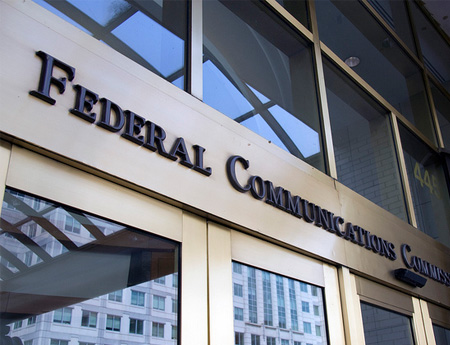Sources: July FCC Vote Expected On IP Clip Captioning

The smarter way to stay on top of broadcasting and cable industry. Sign up below
You are now subscribed
Your newsletter sign-up was successful
Broadcasters and cable operators may be battling over retrans, but they are on the same side when it comes to closed captioning online clips of shows originally aired on TV.
The buzz around the commission is that the chairman is planning to circulate an item for a vote at the July 11 open meeting requiring broadcasters and cable operators to caption clips as well as long-form online versions of their shows. There were certainly a flurry of filings from stakeholders in the past few days, suggesting the decision was eminent.
In a joint filing, the National Association of Broadcasters and the National Cable & Telecommunications Association told the FCC they didn't think the FCC had the authority to regulate the captioning of online clips, but that if the FCC does, it should not make them responsible for those clips on third-party sites, including network web sites.
"Any rules should limit a program network’s or broadcaster’s responsibility to certain situations where the network or broadcaster both airs the program on television with captions and exhibits clips from that television program on its own website or its own application," they wrote in the joint filing.
Separately, broadcasters and cable operators have a lot more advice for how the item should be crafted, if there has to be one.
The FCC is apparently considering allowing time-sensitize clips to be used online without captions initially, but swapped out quickly with captioned versions. NAB says having to find and replace such clips would be extraordinarily burdensome, and a short deadline is unreasonable, particularly given that many stations outsource their Web content to third-party vendors.
NAB said the requirement would limit the number of clips that can be used and said a 24-hour deadline would be more reasonable. It also said there were journalistic reasons why an uncaptioned version of a clip would be retained on a site along with a captioned version.
The smarter way to stay on top of broadcasting and cable industry. Sign up below
NCTA urged the FCC to allow voluntary efforts to continue rather than imposing the clip mandate. It also urged the FCC to recognize the difficulty of captioning time-sensitive clips and its support for a 24-hour turnaround time. NCTA also argues that the FCC should not apply its captioning quality standards to online clips.
"[P]rogrammers may not be able to repurpose television captions for use in online clips and therefore it would be unreasonable to compare the captioning for online clips to that used for full-length television programming," NCTA argues.
NCTA said that the requirement should apply to straight-lift clips, rather than montages, and that they should have to be at least 15 seconds long. It also says the FCC should exempt "advance" clips, which are ones posted before a program from which they are taken airs.
The FCC's Media Bureau last December sought comment on the state of closed captioning of IP-delivered video clips and whether the online captioning mandate should be extended to clips.
The captioning mandate applies to broadcast and cable content re-airing on the Web, not to Web-original video.
In implementing the Communications and Video Accessibility Act (CVAA), the FCC concluded that in applying the mandate to the owners and distributors of IP-delivered video, it would initially apply it only to full-length programming and not to clips. But it also interpreted the statute to mean that Congress left open the question of whether it would eventually also apply to those clips given the "at this time" language relating to the full-length programming mandate. At the time, the commission said it might later decide it was best to require captioning clips, expected the industry to do so as well, and would monitor its progress.
CVAA co-authors Sens. Mark Pryor (D-Ark.), chairman of the Senate Communications Subcommittee and Ed Markey (D-Mass.), former chair of the House Telecommunications Subcommittee, tried to clear up any confusion. They asked the FCC to close caption online clips, rather than just longer-form video. In a letter to then new FCC chair Tom Wheeler, the pair said they wanted to clarify that their legislative intent had been to do so.
Consumer groups petitioned the FCC to reconsider excluding clips, particularly concerned about news clips. The FCC deferred a decision, saying it would first seek more info on the state of clip captioning. It has done so, and now Wheeler appears ready to act.
If the item is going to be voted at the meeting, it should appear on the tentative agenda expected to be released Friday.
Contributing editor John Eggerton has been an editor and/or writer on media regulation, legislation and policy for over four decades, including covering the FCC, FTC, Congress, the major media trade associations, and the federal courts. In addition to Multichannel News and Broadcasting + Cable, his work has appeared in Radio World, TV Technology, TV Fax, This Week in Consumer Electronics, Variety and the Encyclopedia Britannica.

